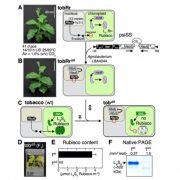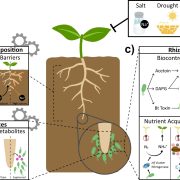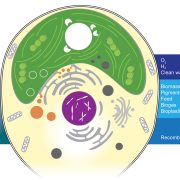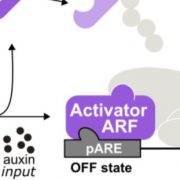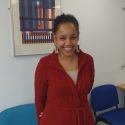Interviews with synthetic biologists: Professor Jennifer Nemhauser
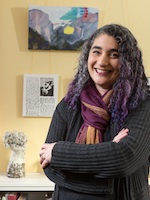 Synthetic biology is a set of tools, a way of thinking, the integration of engineering principles into biological sciences, and potentially the biggest opportunity for advances in plant sciences since PCR. Yet many struggle to define it, and fewer still grasp its full potential.
Synthetic biology is a set of tools, a way of thinking, the integration of engineering principles into biological sciences, and potentially the biggest opportunity for advances in plant sciences since PCR. Yet many struggle to define it, and fewer still grasp its full potential.
In the first of the series Interviews with Synthetic Biologists, Steven Burgess, Visiting Scholar at the University of Illinois at Urbana-Champaign, interviews Jennifer Nemhauser, Professor at the University of Washington. Here are clips from his interview, with selected quotes from each clip.
Jennifer Nemhauser has been studying plant hormones, signaling networks and development for a long time. Before taking her faculty position at the University of Washington in 2006, Jennifer did her doctoral work on auxin and flower development at Berkeley with Pat Zambryski, followed by Postdoctoral work on hormone interactions during seedling development at the Salk Institute with Joanne Chory.
Some of her recent work in synthetic biology:
- Plant synthetic biology: Quantifying the “Known Unknowns” and discovering the “Unknown Unknowns” (2019) Plant Physiology 1104/pp.18.01222
- Synthetic hormone-responsive transcription factors can monitor and re-program plant development (2018) eLIFE 7554/eLife.34702
- Molecular interactions in auxin response circuits (2016) PNAS 1073/pnas.1604379113
How do you use synthetic biology for your work?
To both test hypotheses that were being generated in more reduced settings, and also use that information to engineer novelty.
Can synthetic biology test hypotheses?
In some ways synthetic biology is the ultimate reductionist tool, where you can actually say, “What do I know?”
What is the advantage of studying plants?
There’s so much we don’t know, a vast amount of fascinating biology that we do not understand.
Any advice for budding synthetic biologists?
Take as much math as you can, as soon as possible. … Being able to code and being able to think in abstract terms is critical to getting the most out of the synthetic biology tools.
Do you have a strong background in Math?
No… people who are drawn to biology really need the concrete relationship between those abstract ideas and a concrete example… this understanding was the fundamental insight I needed to understand everything else I have done since.
How do you encourage people to overcome their fear of Math?
Everyone in my lab does a lot of peer mentoring… it helps people get over that initial sense of paralysis.
Steven Burgess did his PhD at Imperial College London, and was a post doc with Julian Hibbard in Cambridge. He is currently a Visiting Scholar at the University of Illinois whose research interests are focused on improving photosynthetic performance of crops for increased yields, using conventional breeding, random mutagenesis and synthetic biology approaches. Follow Steven on Twitter at @sjb015.
Stay tuned for more in this series of Interview with Synthetic Biologists.
Next in series: Steven Burgess interviews Michael Mendez.


